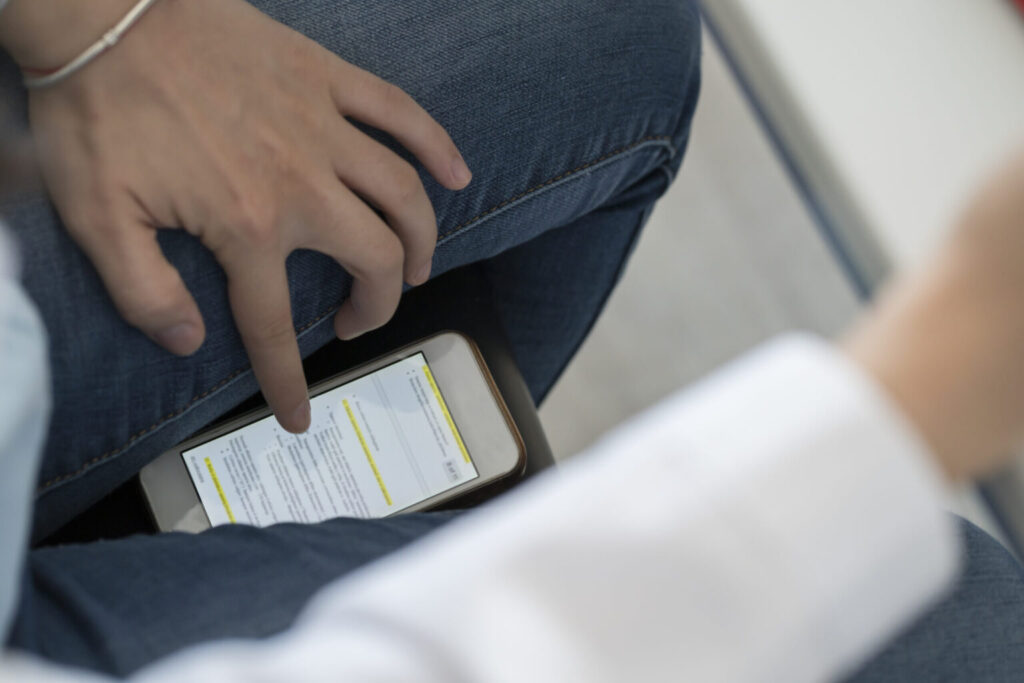A new legislative proposal in Iowa is sparking debate among educators, parents, and students. The proposed bill, introduced by Governor Kim Reynolds, aims to regulate cell phone use in schools by banning them during instructional hours. This initiative has gained traction in the Iowa State Senate, with lawmakers arguing that mobile devices contribute to distractions in the classroom and negatively impact students’ academic performance and social development.
Why Is This Bill Being Proposed?
The widespread use of smartphones among children and teenagers has raised concerns about their effects on education and mental health. According to the National Institutes of Health, around 53% of children own a smartphone by the age of eleven, and an overwhelming 95% of teenagers between 13 and 17 years old have access to a mobile device. While technology plays a crucial role in modern education, the excessive use of smartphones during school hours has become a pressing issue for educators and policymakers.
Supporters of the bill argue that cell phones disrupt the learning environment, making it difficult for students to focus. Teachers often struggle to keep students engaged in lessons while competing with social media, messaging apps, and online entertainment. Studies have shown that excessive phone use correlates with lower academic performance, increased anxiety, and reduced attention spans.
Additionally, concerns about cyberbullying, social media addiction, and exposure to inappropriate content have also played a role in pushing for stricter cell phone regulations in schools.
What Would the “Cell Phone Ban” Enforce?
If passed, the proposed law would require all public, charter, and innovation K-12 schools in Iowa to implement clear policies restricting cell phone use during instructional periods. These policies would be set in place starting in the 2025-2026 academic year.
Key provisions of the bill include:
- No cell phone use during instructional time: Students will not be allowed to use their phones in classrooms, though they may have access during lunch or designated breaks, depending on individual school policies.
- Mandatory social media education for middle school students: Students in 6th through 8th grade will be required to learn about the effects of social media, including potential dangers like cyberbullying, misinformation, and screen addiction.
- Emergency communication plans: Schools must establish a clear protocol for how parents can reach their children during school hours in case of an emergency.
- Accommodations for students with special needs: Students with disabilities or health conditions that require them to use personal devices for medical reasons will be exempt from the ban.
How Will the Bill Be Implemented?
To ensure effective implementation, the Iowa Department of Education will be responsible for creating sample policies that schools can adopt or modify according to their specific needs. The department will also collaborate with the Department of Public Safety to update school emergency plans, taking the new phone restrictions into account.
Additionally, the Department of Health and Human Services will work with educators to assess the impact of social media on students and provide training for teachers on the new coursework related to digital literacy and online safety.
Reactions from Parents, Teachers, and Students
As expected, the bill has sparked mixed reactions among different groups.
Supporters of the bill, including many educators and parents, believe that restricting phone use will help students focus better on their studies and improve classroom discipline. Teachers have voiced frustration over students constantly being distracted by their devices, making it challenging to maintain engagement during lessons. Some parents also agree that reducing phone use could minimize the risks of cyberbullying and social media pressure.
However, opponents of the bill argue that outright banning cell phones is not a practical solution. Some parents worry about losing direct communication with their children during school hours, especially in emergencies. Others argue that phones can be valuable educational tools when used correctly, helping students access digital resources, research information, and stay organized.
Many students oppose the ban, stating that it feels like an unnecessary restriction. They argue that responsible phone use should be taught rather than prohibited. Some believe that enforcing such a rule will be difficult, as students may find ways to use their devices discreetly despite the restrictions.
How Will This Impact Iowa Schools?
If passed, this law could lead to significant changes in how schools operate. It would require school administrators to revise their current policies and enforce stricter rules regarding mobile device usage.
Teachers would also need to adapt their teaching methods, ensuring that lessons remain engaging without relying on digital tools accessed via smartphones. Additionally, schools will have to invest in alternative communication methods for students and parents, such as office phone access or messaging systems through school-provided devices.
Will This Bill Become Law?
As the bill moves through the Iowa legislature, it remains to be seen whether it will pass into law. While there is strong support from some lawmakers and educators, the concerns raised by parents and students may lead to potential modifications before final approval.
Policymakers will need to consider striking a balance between reducing distractions and ensuring that students and parents still have a means of communication when necessary.
Conclusion
The debate over cell phones in schools is not unique to Iowa—many states and countries are grappling with similar concerns. The increasing reliance on mobile devices in daily life makes it challenging to find the right balance between their benefits and potential downsides.
Whether this bill becomes law or not, one thing is clear: the conversation about technology’s role in education is far from over. Schools, parents, and lawmakers must work together to create policies that prioritize student learning while addressing modern challenges.
As the bill progresses, we will continue to provide updates on its development and how it may impact students and schools across Iowa. Stay informed by following local news and legislative updates.
Disclaimer – Our editorial team has thoroughly fact-checked this article to ensure its accuracy and eliminate any potential misinformation. We are dedicated to upholding the highest standards of integrity in our content.





More Stories
Governor Reynolds Proposes Legislation to Limit Cell Phone Use in Iowa Classrooms
Governor Reynolds Proposes Legislation to Limit Cell Phone Use in Iowa Classrooms
Governor Reynolds Proposes Legislation to Limit Cell Phone Use in Iowa Classrooms